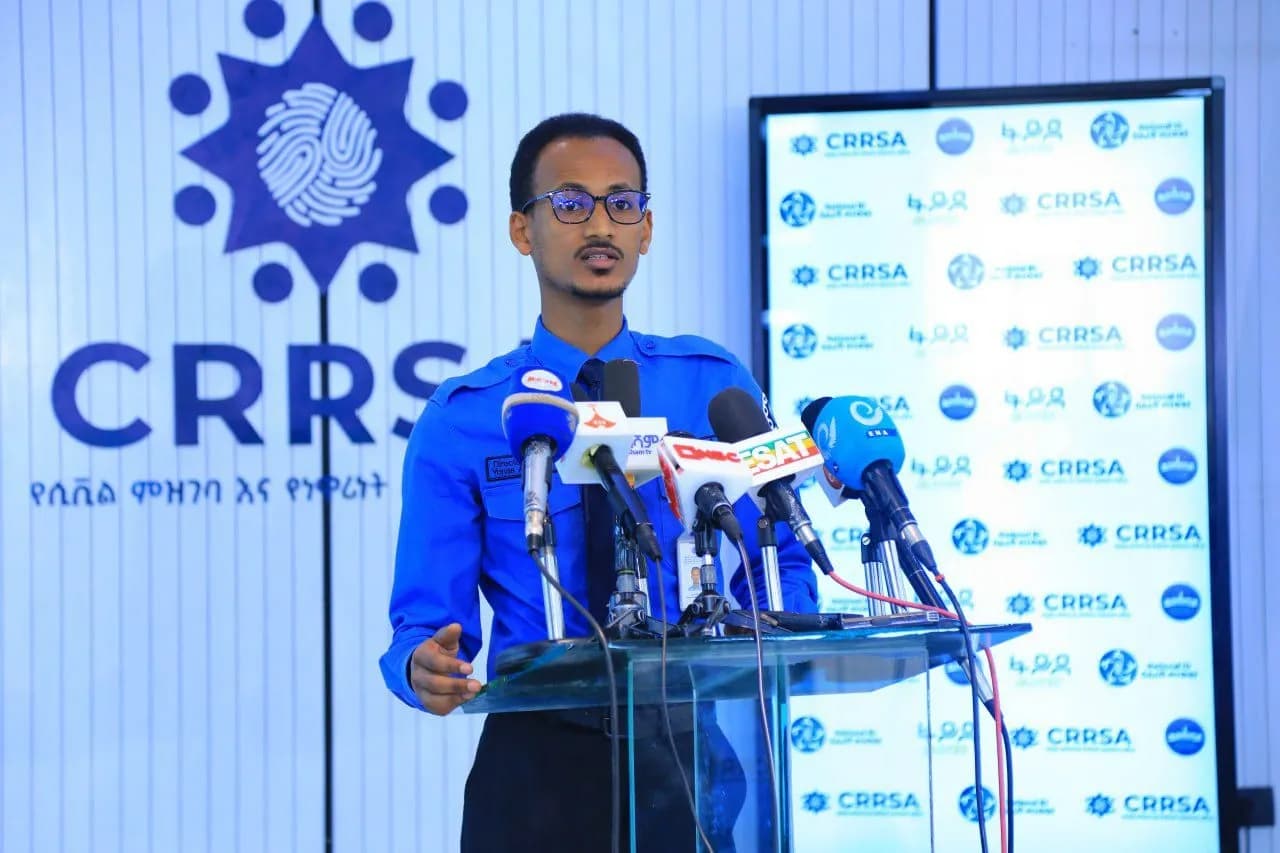Progress for 0 ad
Progress for 1 ad
Progress for 2 ad
Progress for 3 ad


Daniel Metaferiya
Addis Ababa, Ethiopia

Fayda, Ethiopia’s national digital ID project, is joining forces with the Addis Ababa Civil Registration & Resident Services Agency (CRRSA) as they target to issue one million new IDs within the first month of collaborating. Registration of both city residents and non-residents for the digital ID will be provided across all CRRSA offices in the 12 districts of the capital, alongside an awareness campaign.
Yodahe Zemichael, Executive Director of National ID Ethiopia, pointed out that the project ranks second only to the Grand Ethiopian Renaissance Dam (GERD) in the list of key undertakings spearheaded by Prime Minister Abiy Ahmed’s (PhD) office. He clarified misconceptions about digital ID by emphasizing its dematerialized nature as a series of numbers.
“A physical card is optional,” Yodahe noted.
During the agreement ceremony held at the CRRSA’s headquarters on Wednesday morning, the executive director revealed that nearly 10 million people have registered for Fayda so far.
A joint task force has begun preparations for the city wide registration campaign that looks to leverage the CRSSA’s expansive reach in the capital.
The agreement between the two offices is central to the realization of the smart city project being headed by the Addis Ababa City Administration. Plans for system integration between public service providers in the capital as part of the larger project are slated to begin soon.
Despite significant progress in the past few years, Ethiopia remains ranked in the bottom 24 countries in the latest UN E-government development index. While a spirited push towards digitization has been spearheaded by the PM as part of the Digital Ethiopia 2025 strategy, issues like identification, infrastructure, and digital literacy have limited quick success.
Under Yonas Alemayehu, CRSSA has expanded its digital footprint in the capital, most recently unveiling an automatic registration capacity for births and deaths across hospitals.
With nearly 40% of Ethiopians lacking proper documentation, a series of technology-backed initiatives have been launched by the government in a bid to address the gap. Fayda plays a crucial role in realizing national digital inclusion goals. The World Bank approved a 350-million-dollar financing package in December 2023 to assist the project targeting the registration of nearly 90 million Ethiopians.
👏
😂
❤️
😲
😠

Daniel Metaferiya
Daniel Metaferiya is a writer, journalist and radio host, with a keen interest in technology. He follows developments in Ethiopia's startup ecosystem closely and is passionate about profiling unique MSMEs.
Your Email Address Will Not Be Published. Required Fields Are Marked *